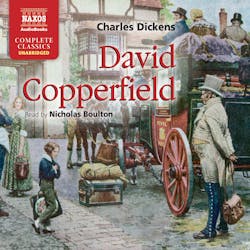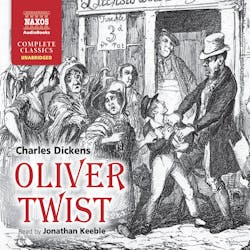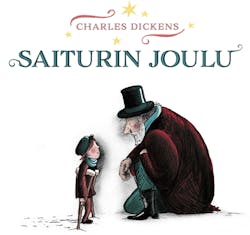In "The Adventures of Oliver Twist," Charles Dickens crafts a poignant narrative that unfurls the harrowing journey of a young orphan navigating the stark realities of 19th-century England. Through a rich tapestry of vivid characters and deeply symbolic scenes, Dickens employs a blend of realism and melodrama to critique social injustices, particularly highlighting the plight of the poor and the inadequacies of the workhouse system. The novel's intricate exploration of themes such as innocence, crime, and the struggle for identity resonates, becoming a cornerstone of the Victorian literature canon. Dickens himself experienced the harshness of poverty during his childhood, which profoundly influenced his writing. Raised in a working-class family, he observed firsthand the struggles faced by the underprivileged. His experiences working in a factory at a young age fueled his passion for social reform and empathy for those marginalized by society, leading him to create characters like Oliver, who epitomizes both vulnerability and resilience. Dickens's deep-seated belief in the potential for redemption shines through his narrative, compelling readers to confront uncomfortable truths. "The Adventures of Oliver Twist" is essential reading for anyone interested in understanding the socio-economic dynamics of Victorian England. Through its compelling storyline and richly drawn characters, the novel invites readers to reflect on moral questions of compassion and justice. Whether for scholarly pursuit or personal enrichment, this timeless tale offers profound insights that remain relevant in contemporary discussions of social inequality.

90 Masterpieces You Must Read (Vol.1) : Novels, Poetry, Plays, Short Stories, Essays, Psychology & Philosophy: The Madman, Moby-Dick, Siddhartha, Crime and Punishment, Hamlet, Great Expectations, Little Women, Meditations, The Einstein Theory, Heart of Darkness, The Red Badge of Courage
Walt Whitman, Herman Hesse, George Eliot, Kahlil Gibran, Anton Chekhov, Herman Melville, Oscar Wilde, Fyodor Dostoevsky, Nikolai Gogol, James Joyce, Henry David Thoreau, William Shakespeare, T. S. Eliot, John Keats, Charles Baudelaire, Walter Scott, Daniel Defoe, Louisa May Alcott, Jane Austen, Charlotte Brontë, Emily Brontë, Anne Brontë, Leo Tolstoy, Benito Pérez Galdós, William Makepeace Thackeray, Pierre Choderlos de Laclos, R.D. Blackmore, Alexandre Dumas, Marcel Proust, D. H. Lawrence, Charles Dickens, Thomas Hardy, Henry James, Guy de Maupassant, Princess Der Ling, Victor Hugo, Juan Valera, Anthony Trollope, Stephen Crane, E. M. Forster, Theodore Dreiser, Margaret Cavendish, Upton Sinclair, Plato, Apuleius, Marcus Aurelius, Sun Tzu, Voltaire, Miguel de Cervantes, Giovanni Boccaccio, Frederick Douglass, Sigmund Freud, H. A. Lorentz, Wallace D. Wattles, James Allen, Agatha Christie, Arthur Conan Doyle, Joseph Conrad, H. P. Lovecraft, Washington Irving, Mary Shelley, H. G. Wells, Edgar Allan Poe, Ernest Hemingway, L. Frank Baum, Robert Louis Stevenson, Mark Twain, Selma Lagerlöf, Jack London, Jules Verne, Lewis Carroll, Frances Hodgson Burnett, Rudyard Kipling, George Bernard Shaw, Soseki Natsume, Johann Wolfgang Goethe, Edgar Rice Burroughs, Brothers Grimm, Hans Christian Andersen
book
David Copperfield
Charles Dickens
audiobookbook
Suuria odotuksia 1
Charles Dickens
audiobookbook
150 Classics You Should Read Before You Die : Romeo and Juliet, Emma, Vanity Fair, Middlemarch, Tom Sawyer, Faust, Notre Dame de Paris, Dubliners, Odyssey
William Shakespeare, John Milton, Jonathan Swift, Daniel Defoe, Henry Fielding, Laurence Sterne, Jane Austen, William Makepeace Thackeray, P. B. Shelley, Mary Shelley, John Keats, Charlotte Brontë, Emily Brontë, Anne Brontë, George Eliot, Charles Dickens, Thomas Hardy, Elizabeth von Arnim, D. H. Lawrence, Ann Ward Radcliffe, Bram Stoker, Arthur Conan Doyle, Joseph Conrad, Oscar Wilde, Lewis Carroll, Frances Hodgson Burnett, C. S. Lewis, George Weedon Grossmith, H. G. Wells, Willkie Collins, G. K. Chesterton, E. M. Forster, T. S. Eliot, James Joyce, George Bernard Shaw, W. B. Yeats, Sir Walter Scott, Robert Louis Stevenson, Kenneth Grahame, George MacDonald, J. M. Barrie, Mark Twain, Jack London, Herman Melville, Nathaniel Hawthorne, Louisa May Alcott, Willa Cather, Edith Wharton, Kate Chopin, Henry David Thoreau, Walt Whitman, Kahlil Gibran, Harriet Beecher Stowe, Frederick Douglass, James Fenimore Cooper, Henry James, Edgar Allan Poe, H. P. Lovecraft, Lewis Wallace, L. M. Montgomery, Homer, Apuleius, Marcus Aurelius, Johann Wolfgang von Goethe, Herman Hesse, Friedrich Nietzsche, Jules Verne, Marcel Proust, Victor Hugo, Gustave Flaubert, Gaston Leroux, Honoré de Balzac, Stendhal, Plato
book
50 Timeless Masterpieces (Volume 1) : Essential Classics for a Rich Literary Journey
Homer, Sun Tzu, Plato, Dante, Shakespeare, Miguel de Cervantes, John Milton, Daniel Defoe, Johann Wolfgang von Goethe, Jane Austen, Nikolai Gogol, Emily Brontë, Mary Shelley, Alexandre Dumas, Fyodor Dostoevsky, Charles Dickens, Victor Hugo, Nathaniel Hawthorne, Gustave Flaubert, Leo Tolstoy, Henrik Ibsen, Herman Melville, Mark Twain, Robert Louis Stevenson, Arthur Conan Doyle, Raymond Chandler, H. G. Wells, Joseph Conrad, Rudyard Kipling, Louisa May Alcott, L. Frank Baum, L. M. Montgomery, T. S. Eliot, Franz Kafka, James Joyce, Virginia Woolf, C. S. Lewis, Ernest Hemingway, Walt Whitman, Jack Kerouac, John Steinbeck, William Faulkner, Kate Chopin, Zora Neale Hurston, Margaret Mitchell, Sylvia Plath, Thomas Mann, Albert Camus, George Orwell
book
Kaksi kaupunkia
Charles Dickens
book
100 Christmas Classics
Bjørnstjerne Bjørnson, Selma Lagerlöf, Charles Dickens, Mark Twain, Harriet Beecher Stowe, Max Brand, George MacDonald, Sophie May, Louisa May Alcott, Alphonse Daudet, William John Locke, Guy de Maupassant, Gustavo Adolfo Bécquer, Benito Pérez Galdós, Armando Palacio Valdés, Susan Anne Livingston Ridley Livingston Sedgwick, Anthony Trollope, Marcel Prévost, Beatrix Potter, Mary Hartwell Catherwood, Bret Harte, Lucas Malet, Thomas Nelson Page, O. Henry, Saki, François Coppée, Maud Lindsay, Alice Hale Burnett, Walter Crane, André Theuriet, Amy Ella Blanchard, Isabel Cecilia Williams, Amanda M. Douglas, Edgar Wallace, Booker T. Washington, Olive Thorne Miller, Vernon Lee, Anne Hollingsworth Wharton, Kate Upson Clark, Ernest Ingersoll, Willis Boyd Allen, F. L. Stealey, L. Frank Baum, J. M. Barrie, Eleanor H. Porter, Annie F. Johnston, Jacob A. Riis, Elbridge S. Brooks, Edward A. Rand, Florence L. Barclay, E. T. A. A Hoffmann, Harrison S. Morris, Robert E. Howard, Marjorie L. C. C Pickthall, Hans Christian Andersen, Henry van Dyke, Lucy Maud Montgomery, Anton Chekhov, Leo Tolstoy, Fyodor Dostoevsky, Madame d'Aulnoy, A. S. Boyd, Juliana Horatia Ewing, Brothers Grimm, Nora A. Smith, Phebe A. Curtiss, Nellie C. King, Lucy Wheelock, Frederick E. Dewhurst, Jay T. Stocking, Anna Robinson, Florence M. Kingsley, M. A. L. L Lane, Elizabeth Harkison, F. E. Mann, Winifred M. Kirkland, Katherine Pyle, Grace Margaret Gallaher, Elia W. Peattie, F. Arnstein, James Weber Linn, Antonio Maré, Jules Simon, Marion Clifford, E. Hale, Georg Schuster, Matilda Betham Edwards, Angelo J. Lewis, Raymond McAlden, Pedro A. de Alarcón, Maxime du Camp
book
90 Masterpieces of World Literature (Vol.I) : Novels, Poetry, Plays, Short Stories, Essays, Psychology & Philosophy
Walt Whitman, Herman Hesse, George Eliot, Kahlil Gibran, Anton Chekhov, Herman Melville, Oscar Wilde, Fyodor Dostoevsky, Nikolai Gogol, James Joyce, Henry David Thoreau, William Shakespeare, T. S. Eliot, John Keats, Charles Baudelaire, Walter Scott, Daniel Defoe, Louisa May Alcott, Jane Austen, Charlotte Brontë, Emily Brontë, Anne Brontë, Leo Tolstoy, Benito Pérez Galdós, William Makepeace Thackeray, Pierre Choderlos de Laclos, R.D. Blackmore, Alexandre Dumas, Marcel Proust, D. H. Lawrence, Charles Dickens, Thomas Hardy, Henry James, Guy de Maupassant, Princess Der Ling, Victor Hugo, Juan Valera, Anthony Trollope, Stephen Crane, E. M. Forster, Theodore Dreiser, Margaret Cavendish, Upton Sinclair, Plato, Apuleius, Marcus Aurelius, Sun Tzu, Voltaire, Miguel de Cervantes, Giovanni Boccaccio, Frederick Douglass, Sigmund Freud, H. A. Lorentz, Wallace D. Wattles, James Allen, Agatha Christie, Arthur Conan Doyle, Joseph Conrad, H. P. Lovecraft, Washington Irving, Mary Shelley, H. G. Wells, Edgar Allan Poe, Ernest Hemingway, L. Frank Baum, Robert Louis Stevenson, Mark Twain, Selma Lagerlöf, Jack London, Jules Verne, Lewis Carroll, Frances Hodgson Burnett, Rudyard Kipling, George Bernard Shaw, Soseki Natsume, Johann Wolfgang Goethe, Edgar Rice Burroughs, Brothers Grimm, Hans Christian Andersen
book
Kaksi kaupunkia
Charles Dickens
book
Oliver Twist
Charles Dickens
audiobookbook
Saiturin joulu
Charles Dickens
audiobookbook
Mugbyn risteys
Charles Dickens
audiobookbook
